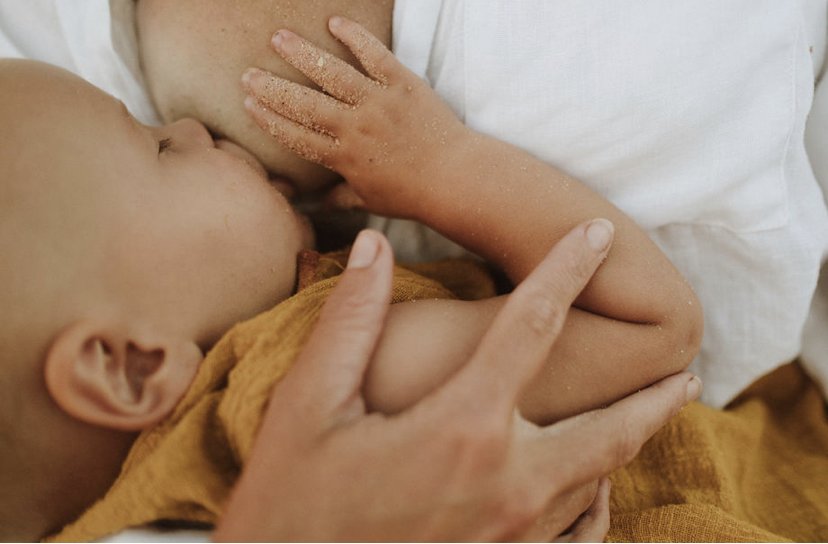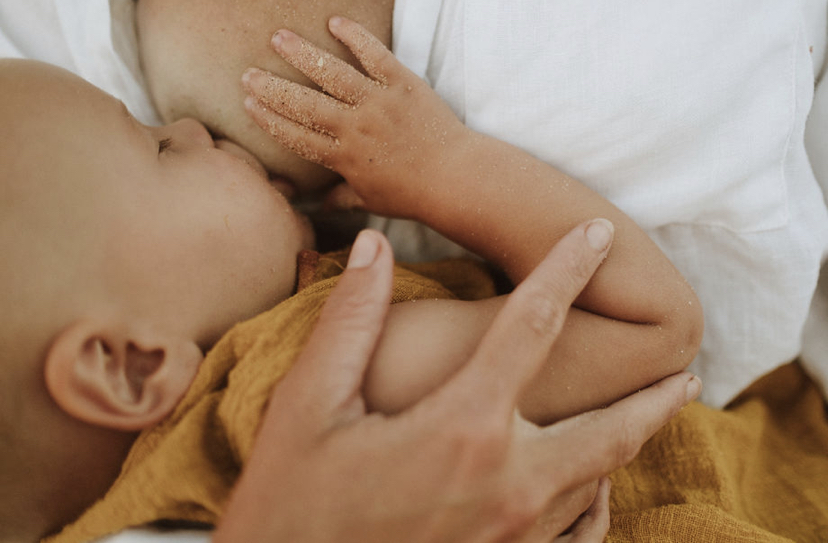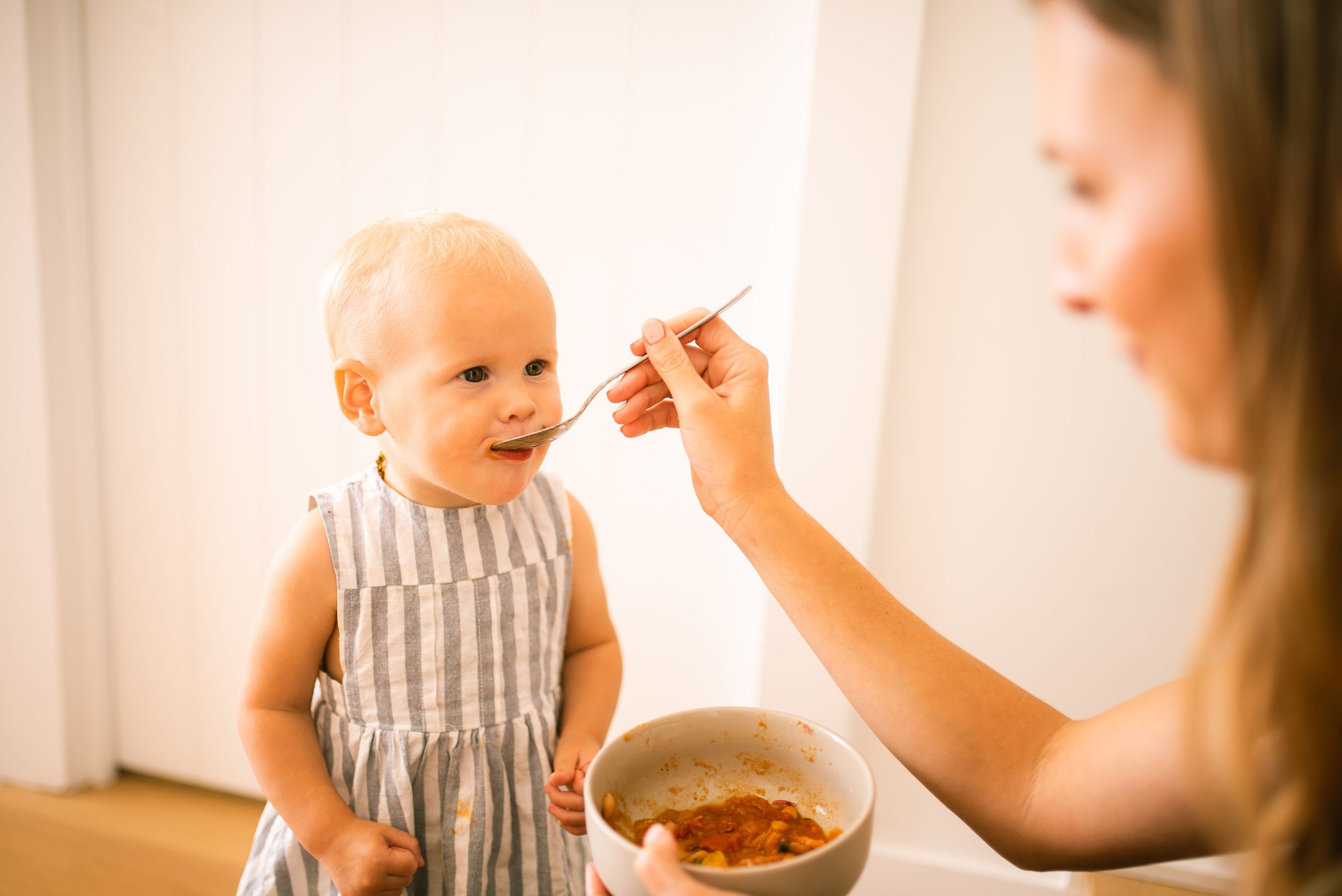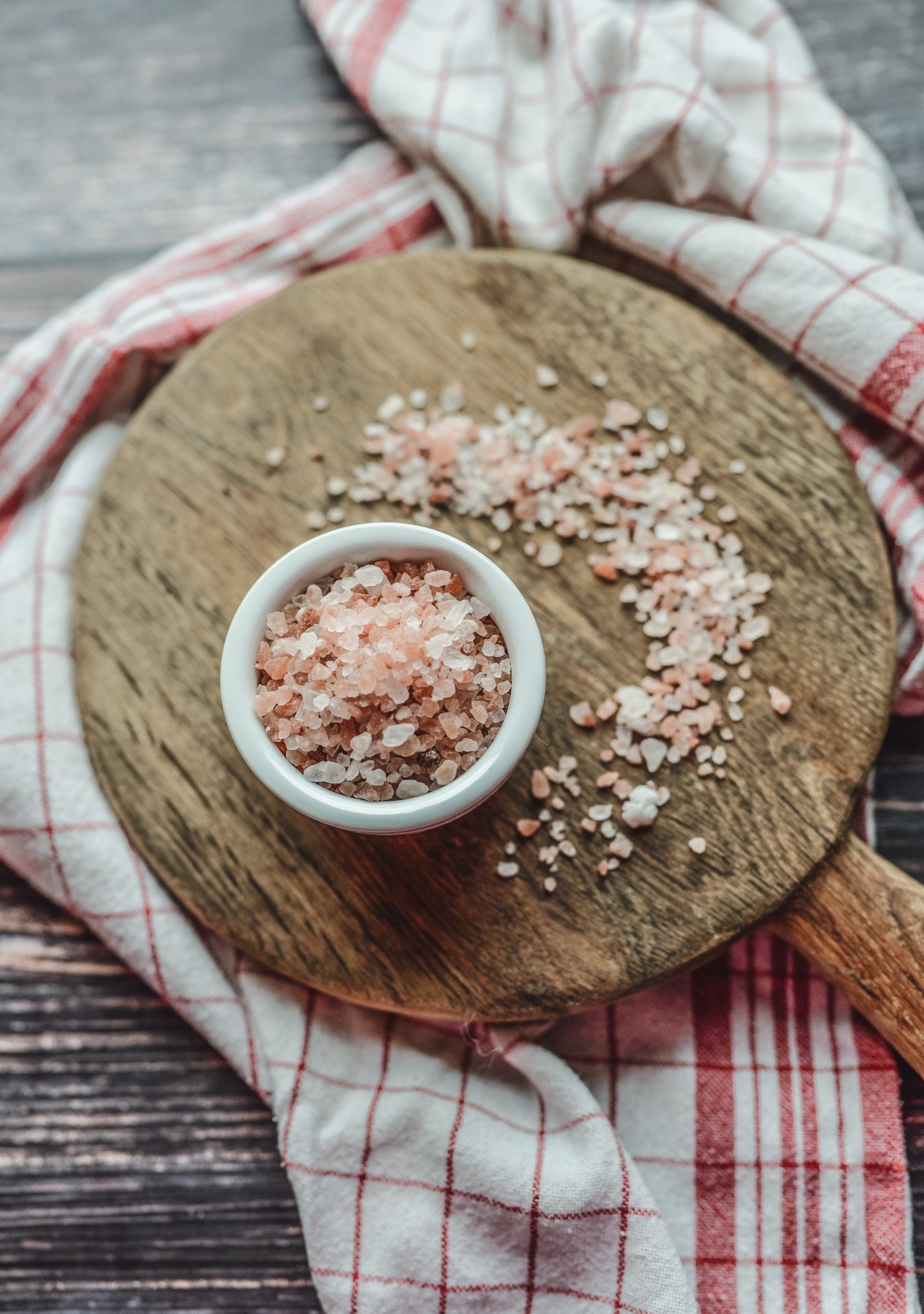Weaning can be one of the most significant (and emotional) milestones in your parenting journey. Whether it’s your first time navigating this stage or not, choosing when and how to wean is deeply personal. There’s no single “right” way to do it, but understanding the process and having guidance along the way can help ensure your child’s nutritional needs are met—and that your own wellbeing is supported too.
What is weaning?
Weaning is the process of transitioning a baby from milk feeds (breastmilk or formula) to other foods and fluids. When your little one officially stops milk feeds, they are considered fully weaned.
When is the right time to wean?
The weaning process typically begins around six months of age, when solids are first introduced. Initially, solids are small and supplement milk feeds, rather than replace them. As your baby becomes more comfortable and skilled with eating, portion sizes will gradually increase.
Breastmilk or infant formula should remain the primary source of nutrition until around 12 months of age.1 After this point, solids should begin to take priority, with milk feeds gradually phased out. Deciding when to fully wean is a very personal decision and may be influenced by a range of factors such as a return to work, your baby’s readiness, or your own health and emotional wellbeing.
The World Health Organization (WHO) recommends breastfeeding up to two years and beyond, but we understand that this isn’t always practical or sustainable for every family.2 We wholeheartedly support extended breastfeeding if it works for you, but we also strongly support maternal mental and physical health. The best choice is the one that works for your family.
Replacing breastmilk/infant formula with cow’s milk or toddler milk – is it necessary after 12 months?
The short answer is no.
Once your baby has weaned from breastmilk or infant formula, their nutrition should come from a well-balanced, whole-food diet. While cow’s milk can be offered in foods like smoothies, porridge or pancakes, or as a drink in a cup, it does not need to “replace” milk feeds.
As for toddler milks or formulas—they are not necessary. These ultra-processed products are heavily marketed, but not recommended by most major health authorities, including the WHO. They are not nutritionally required and can be misleading for parents. If you’re concerned about your toddler’s diet or eating habits, support from a trusted health professional can make all the difference. You’re welcome to book an appointment with our clinic here.
Comforting your child through weaning
For many little ones, feeding isn’t just about nutrition—it’s also a source of comfort. Transitioning away from milk feeds may be emotional for both of you. There are many ways to maintain that closeness and provide reassurance during this time:
- Offer extra cuddles, kisses, and physical affection
- Spend intentional one-on-one time through play or reading
- Validate their emotions and provide a safe space for them to express their feelings
Weaning can be a deeply emotional experience. It’s okay to feel sadness, uncertainty, or even grief as this chapter closes. Honouring your feelings and your baby’s emotions is a meaningful part of the process.
Ways we can help:
Weaning isn’t one-size-fits-all – because babies aren’t robots, and neither are mums, thats why we created our WEANING MASTERCLASS.
Whether you’re weaning gradually, night weaning, or preparing to stop breastfeeding entirely, this resource is here to guide you through it – with simple, practical strategies you can adapt to your child and your life.
Together with International Board Certified Lactation Consultant Amy Chatburn-Stevens, we walk you through a wide range of approaches – because no two weaning journeys look the same (and they shouldn’t!).
Inside, you’ll find:
✔️ Gentle strategies for different stages of weaning
✔️ Ideas to support both your little one’s needs and your own
✔️ Ways to manage the emotional side of weaning – for you and your baby
✔️ Real stories from other mums (so you know you’re not alone)
If you’re wondering when or how to start, or feeling unsure about what comes next – this is for you.
We also have a few podcasts on weaning:
Our weaning stories
Weaning after 12 months – how do we do it?
Does my child need formula after 12 months?
Because there’s no right way to wean – just the way that works for you and your baby. And we’re here to help you find it. 💛
If you’d like further support with weaning – whether for your baby or yourself – we’re here to help. Check out our Weaning Masterclass or book an appointment with our clinic here.

Nutritionally supporting yourself during weaning
Weaning can affect your body and hormones in ways that might catch you off guard, especially if the process is sudden. You may experience symptoms similar to PMS or the “baby blues” as your body adjusts to changes in hormone levels and oxytocin production.
Symptoms of weaning can include mood swings, fatigue or low motivation, skin breakouts, irritability, weepiness and anxiety. In some cases, the return of your menstrual cycle may also occur.
To support yourself during this time:
- Reduce caffeine and sugar – Both can disrupt hormonal balance and contribute to energy crashes, irritability, and anxious feelings.
- Balance your meals – Include protein, natural fats, and fibre with each meal or snack to keep your blood sugar stable.
- Try maca – This Peruvian root is traditionally used to support hormonal balance and help the body manage stress. It has a pleasant nutty-caramel flavour, making it easy to add to smoothies or porridge.
What if you don’t want to wean? Even though you can wean at 12 months- should you?
If your baby is still happily breast or formula feeding after 12 months and you are also happy, then continue this!
Remember, the World Health Organisation recommends breastfeeding until at least 2 years of age. This is because no matter the age, breastfeeding is ALWAYS beneficial. Not only is breastmilk an extremely nutrient dense food – high in omega-3 fats like DHA and EPA, vitamin A, vitamin B12, folate, calcium, protein and carbohydrates – it is also ALIVE! This means the nutritional and immunological components of breast milk change every day according to the specific needs of your child! Breast milk is full of beneficial microbes and prebiotics (much like a personalised fermented food!) to keep your child’s digestive system functioning optimally. And did you know if your child is sick your breast milk will provide the antibodies needed to help fight that illness?! AND breastfed children appear to have less incidence of illness due to these amazing immunological components of breastmilk.
This post isn’t intended to put blame or guilt on anyone who chooses to wean prior to 2 years – as discussed, there are so many reasons why you may choose to do this, need to do this, or why your child may do this for you. Our aim is to empower those who choose to continue feeding, and to provide information to those at all stages of their weaning journey. According to the ABA only 21% of Australian women are still breastfeeding after 12 months (ABA 2022), so obviously more education and information is necessary to normalise and support this very natural process ❤️
REFERENCES
World Health Organisation (2021), Infant and young child feeding, https://www.who.int/news-room/fact-sheets/detail/infant-and-young-child-feeding (accessed 24.11.22)
Australian Breastfeeding Association (2022), Solids – getting prepared https://www.breastfeeding.asn.au/resources/solids-getting-prepared (accessed 11.11.22)
Australian Breastfeeding Association (2022), Wondering how long to keep breastfeeding? https://www.breastfeeding.asn.au/resources/wondering-how-long-breastfeed (accessed 11.11.22)
National Health and Medical Research Council (NHMRC). (2012). Infant feeding guidelines: Information for health workers. Australian Government Department of Health and Ageing, https://www.nhmrc.gov.au/about-us/publications/infant-feeding-guidelines-information-health-workers (accessed 11.11.22)
Bondi S and Liew K. Excessive Cow’s Milk Consumption and Iron Deficiency in Toddlers. ICAN: Infant, Child & Adolescent Nutrition. 2009; 1: 133-139.
Sandoval C, Berger E, Ozkaynak MF, Tugal O, Jayabose S. Severe iron deficiency anemia in 42 pediatric patients. Pediatr Hematol Oncol. 2002;19:157-161.
Ekhard E Ziegler, Consumption of cow’s milk as a cause of iron deficiency in infants and toddlers, Nutrition Reviews, Volume 69, Issue suppl_1, November 2011, Pages S37–S42, https://doi.org/10.1111/j.1753-4887.2011.00431.x
Domellöf, M., Braegger, C., Campoy, C., Colomb, V., Decsi, T., Fewtrell, M., Hojsak, I., Mihatsch, W., Molgaard, C., Shamir, R., Turck, D., & van Goudoever, J. (2014). Iron Requirements of Infants and Toddlers. Journal of Pediatric Gastroenterology & Nutrition, 58(1), 119–129. https://doi.org/10.1097/mpg.0000000000000206
WRITTEN BY:
Luka McCabe (RN/RM/Nutrition Consultant)
Kate Holm (Naturopath & Nutritionist)
REVIEWED BY:
Renee Jennings (Dietitian and Nutritionist, APD)






Latest research shows only 15 % babies being exclusively breastfed to 5 months – definitely needs to be more education in the prenatal period and support postnatal to improve these numbers!
https://www1.health.gov.au/internet/main/publishing.nsf/Content/health-pubhlth-strateg-brfeed-index.htm
Thank you so much for this. It’s exactly what I needed right now being at 13 months breast feeding and wondering where to from now. You are just the best I don’t know what I would do with out your knowledge and advice
Thank you so much, this is very helpful.
I am trying to build up a supply for my freezer, before I go back to work and have been pumping atvthe end of a feed. I am only getting 20mls at this stage (baby 8 months old). If I pump after feeding, will this overstimulate the breast too much? 🙂
Such a great post, thanks Luka! I expected my breastfeeding journey to go on for longer, but at almost 9 months I’m a bit over it! So nice to be able to acknowledge that and know that it’s ok for my needs to matter as well as my baby’s! X
Thanks! I have been looking for this info for a long time. You haven’t mentioned oat milk? This has been an alternative for us as my son couldn’t have dairy or any formula available.